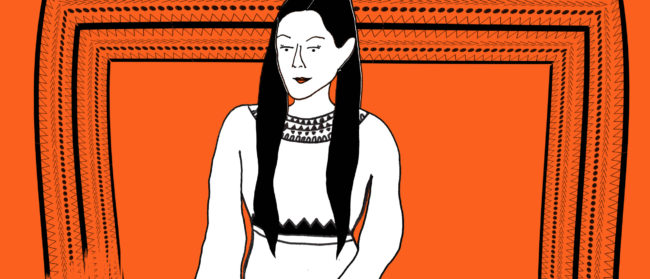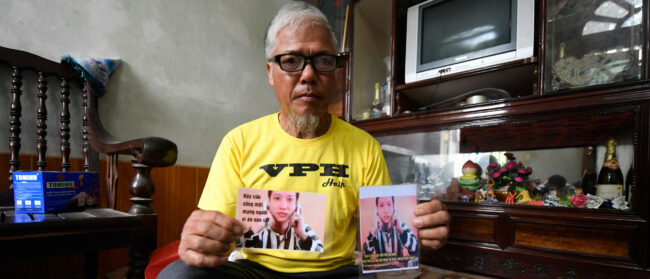On an overcast day in The Hague on January 23, 27-year-old Yasmin Ullah sat apprehensively in the International Court of Justice (ICJ) chambers, awaiting the verdict that could ultimately change the course of history for her people.
As Ullah gripped the hand of another Rohingya woman sitting beside her, the president of the world’s largest court, based in the Netherlands, slowly weighed out the case brought forth by a small west African nation in November last year. The Gambia had accused Myanmar of committing genocidal acts against the country’s Rohingya ethnic minority beginning in 2017.
“We were just sitting there, squeezing each other’s hands. We couldn’t do anything else,” Ullah told the Southeast Asia Globe over the phone from her home in Vancouver. “It was nerve-wracking.”
The court’s decision was unanimous: Myanmar was ordered to take urgent measures to protect the persecuted Rohingya within their borders, with the ruling also explicitly recognising the ethnic minority as a protected group under the Geneva Convention and ordering their safe repatriation from camps in Bangladesh.
“As soon as the president announced that the Rohingya were the protected group, we all let out a huge sigh,” Ullah described. “It was like a massive weight had been lifted.”
For the political science undergraduate student in particular, the ruling was deeply personal. Ullah is the president of the Canada-based Rohingya Human Rights Network, whose advocacy work helped garner international support to bring Aung San Suu Kyi and the Myanmar government to the ICJ.
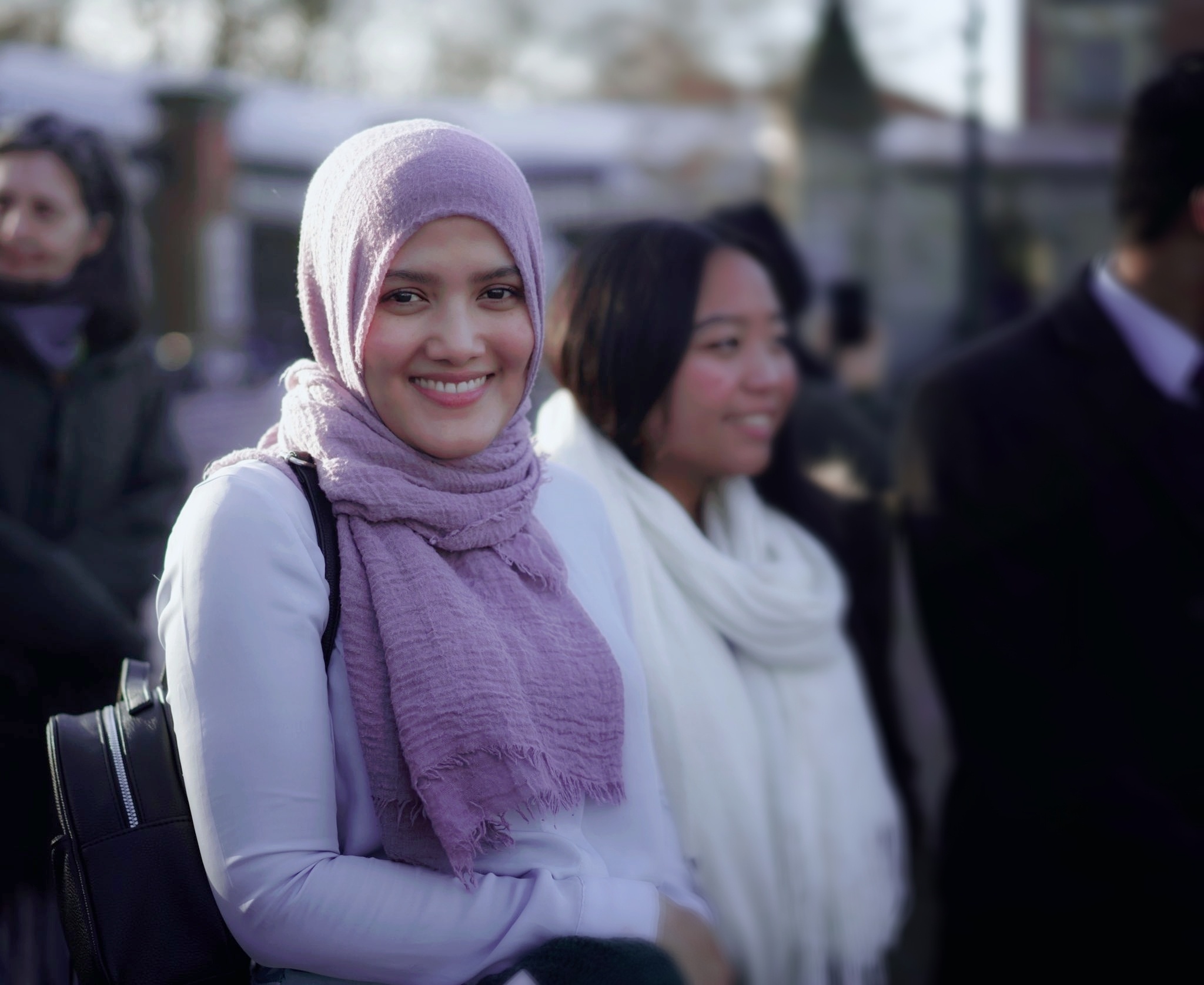
As soon as the president announced that the Rohingya were the protected group, we all let out a huge sigh. It was like a massive weight had been lifted
Yasmin Ullah
Ullah is also a strong ally of Rohingya women, pushing for equal rights and working alongside civil society groups to negate the effect of transgenerational trauma which persists within the Rohingya community.
Although her activism has reached the world’s highest tribunal, Ullah’s mission to speak out for Rohingya women and children fleeing mass atrocities means her fight for recognition is only just beginning.
Her journey for justice began in Buthidaung township in northern Arakan, now known as Rakhine state. In 1992, she was born into a wave of violence sweeping the nation during the early 1990s as the ruling military junta made efforts to weaken the country’s many ethnic groups.
That year, 250,000 Rohingya had already been exiled to Bangladesh, attempting to flee forced labour, rape, killings and religious oppression at the hands of the military, as well as sectarian violence between Rakhine’s Buddhist and Muslim communities.
“In the 90s, there was a lot of violence … We were really beginning to see the implications of the 1982 law that stripped us of our citizenship,” Ullah explained, referring to sweeping citizenship regulations introduced by the Myanmar government that ultimately rendered the already persecuted Rohingya stateless.
The dispute over citizenship is at the heart of the Rohingya issue in Myanmar. Rohingya maintain they are the indigenous peoples of western Rakhine state, who can trace their ancestry to the eighth century. The Myanmar government, however, posits them as illegal immigrants from neighbouring Bangladesh brought over during the British colonial rule beginning in 1824.
The 1982 law ushered in heavy restrictions on the Rohingya’s rights to travel freely, study, work, marry and practice their religion. They were denied the right to vote and access to health services was severely limited.
Feeling the pressure from these heavy restrictions on their day-t0-day life, when Ullah was just three years old, her family smuggled themselves across the Thailand border to escape.
“We had to flee,” Ullah said frankly.
Her mother was witnessing how an already patriarchal Rohingya society combined with government oppression was having an acute impact on women’s freedom, and realised her daughter’s education would likely not surpass a sixth grade level if they stayed.
“Our culture was about keeping women closer and closer to the home until eventually they’re not allowed to go outside whatsoever, just to protect them,” Ullah said, explaining that her own mother had been married at a young age and she was determined not to let history repeat itself. “She wanted me to be able to at least read and write. That was her dream.”
However, life in Thailand – which started in Mae Hong Son in the west and then Chiang Mai – was far from ideal. For decades, Thailand has accommodated thousands of displaced persons from Myanmar – but as a non-signatory to the 1951 Refugee Convention, they do not recognise Rohingya, nor any Burmese, as refugees.
So, despite finding freedom, her family was constantly on the move from fear of being discovered as illegal immigrants.
“We had to resort to making fake identifications to get by, to go through checkpoints, to not be arrested, to stop the police officers harassing us and extorting money.”
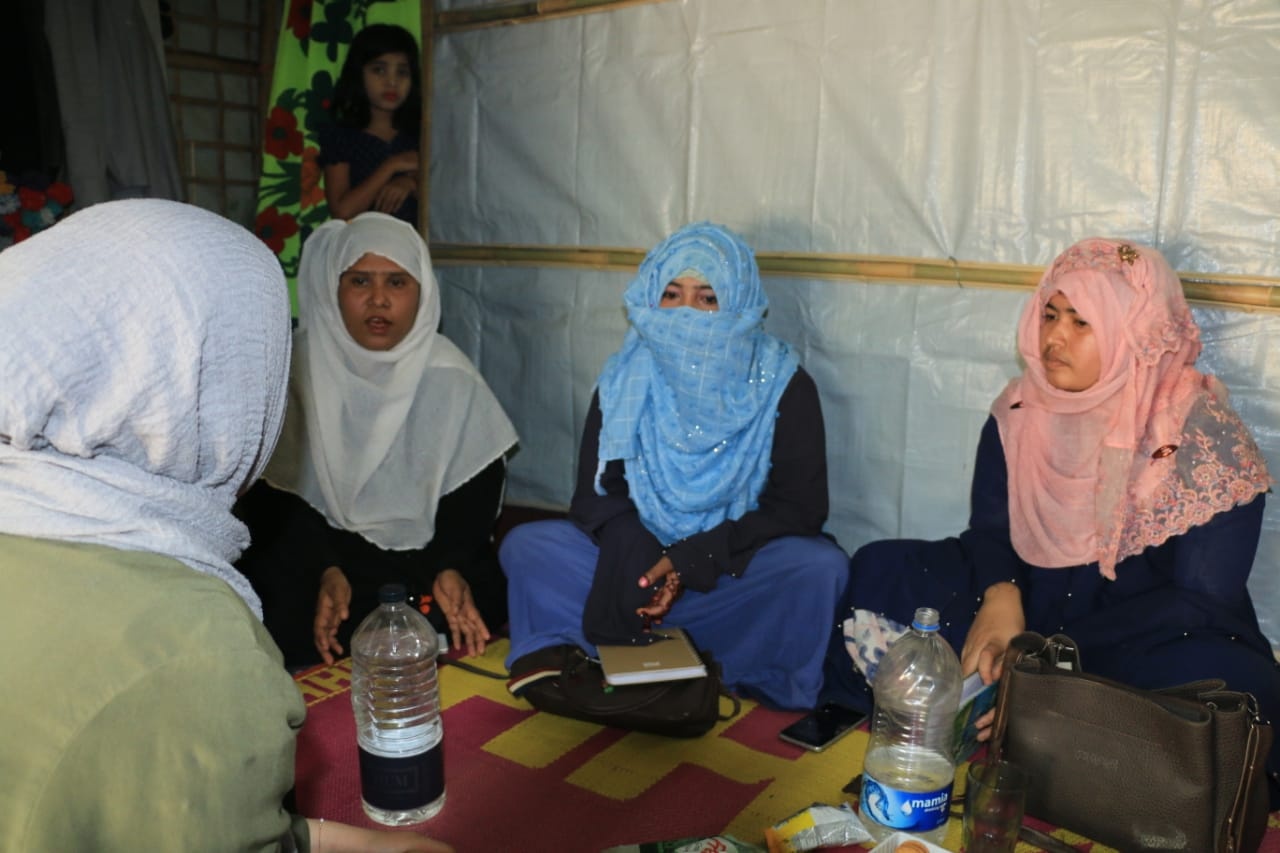
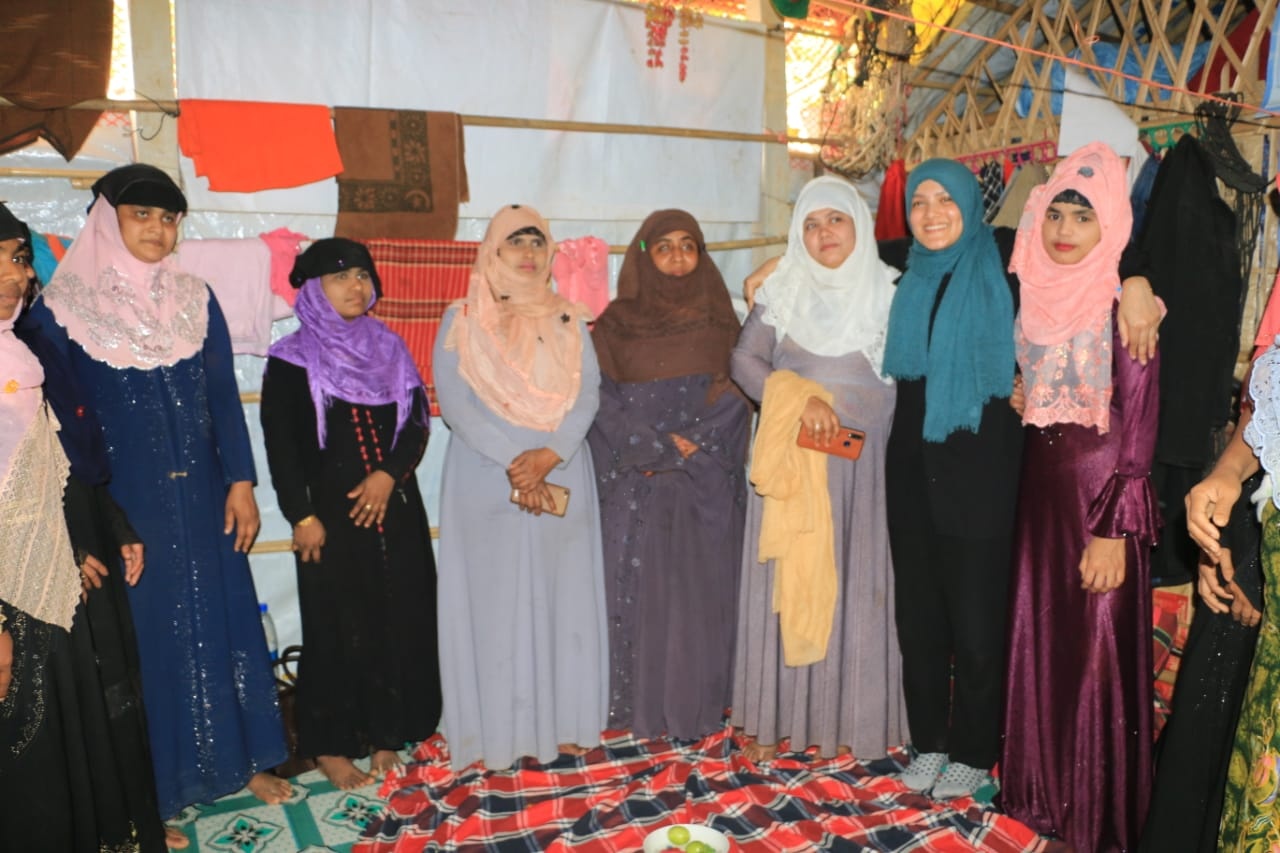
Eventually, after 16 years of living as stateless refugees, they were sponsored by a Canadian church group and immigrated to Canada in 2011, with the whole process taking nearly seven years.
“In a Rohingya life, the one thing that is certain, is that life is never certain,” Ullah said, laughing with a sad irony.
It wasn’t until many years later that Ullah’s drive for advocacy kicked into full swing.
August 25, 2017 is a day Ullah and many other Rohingya will never forget. The Myanmar army began a deadly crackdown that left 77 Rohingya people dead after 12 security agents were killed by Arakan Rohingya Salvation Army insurgents.
Conservative estimates from humanitarian group Médecins Sans Frontières found 6,700 Rohingya, including at least 730 children under the age of five, were killed in the first month after the violence began. The UN would later describe the crackdown as a “textbook example of ethnic cleansing” that forced nearly 750,000 Rohingya to seek refuge in Bangladesh over the next three months.
“It’s like I was losing part of myself. But it was funny, I realised I didn’t even know half of the names of the people that I’m supposed to miss. I realised this part of me is going to be taken away unless I do something,” Ullah said. “Genocide tears families apart.”
Ullah and her friends in Vancouver began to collect money in order to send to her family in Rakhine, and quickly raised over $2,000. Ullah’s mother was eventually able to contact an uncle who was hiding in the jungle after his village had been razed. He agreed to distribute the money they had sent him, risking his life in the process.
Realising the lengths her family in Rakhine were willing to go to distribute money, Ullah set up a crowdfunding campaign.
“I think in three months, we ended up gathering almost $50,000,” she said with an air of disbelief. “We were able to help around 10,000 families over 10 villages.”
Springboarding off the campaign, Ullah found her voice and a community of activists willing to help. In January 2018, she created the Rohingya Human Rights Network alongside fellow Rohingya and activists living across Canada. The network gathers testimonials on behalf of persecuted Rohingya and collaborates with national museums and civil society groups.
That year, Ullah provided testimony and statements before the Canadian Senate and later to the House of Commons to discuss the human rights situation of the Rohingya people. Thanks in part to Ullah and her network pushing for the motion to be passed, by September, the Canadian House of Commons declared that Myanmar’s treatment of the Rohingya constitutes genocide in a unanimous vote.
Later, during the filing process for the ICJ case on November 11 last year, Ullah’s network, along with other activists, asked for Canada and the Netherlands to step up and support The Gambia in their pursuit to hold Myanmar accountable for genocide – with success.
Aside from pushing parliament into action, much of Ullah’s work revolves around intergenerational trauma and supporting Rohingya women in the refugee camps, as according to Ullah, “women bear the brunt of genocide”.
According to a 2018 report by the Ontario International Development Agency titled Forced Migration of Rohingya: The Untold Experience, since the outbreak of violence on August 25, 2017, 18,000 Rohingya women and girls have been raped by Myanmar’s army and police, among the nearly 24,000 Rohingya Muslims that have been killed.
“There are many testimonies I’ve heard and translated for various NGOs that talk about women being locked in their houses, hearing the screaming of their loved ones, hearing as the men and young boys are slaughtered,” said Ullah. “And some of those women would be raped and just left there. Left to wander around the areas with the memory of their loved ones being killed.”
“Why do they keep doing that?” Ullah asked pointedly. “Because they want to keep the women alive, to keep telling the stories, to keep the trauma in the bloodline so that it never leaves the community, so the community is completely terrorised, completely paralysed.”
As of 2018, 18,000 Rohingya women and girls have been raped by Myanmar’s army and police, among the nearly 24,000 Rohingya Muslims that have been killed
A 2018 report by the Ontario International Development Agency titled Forced Migration of Rohingya: The Untold Experience
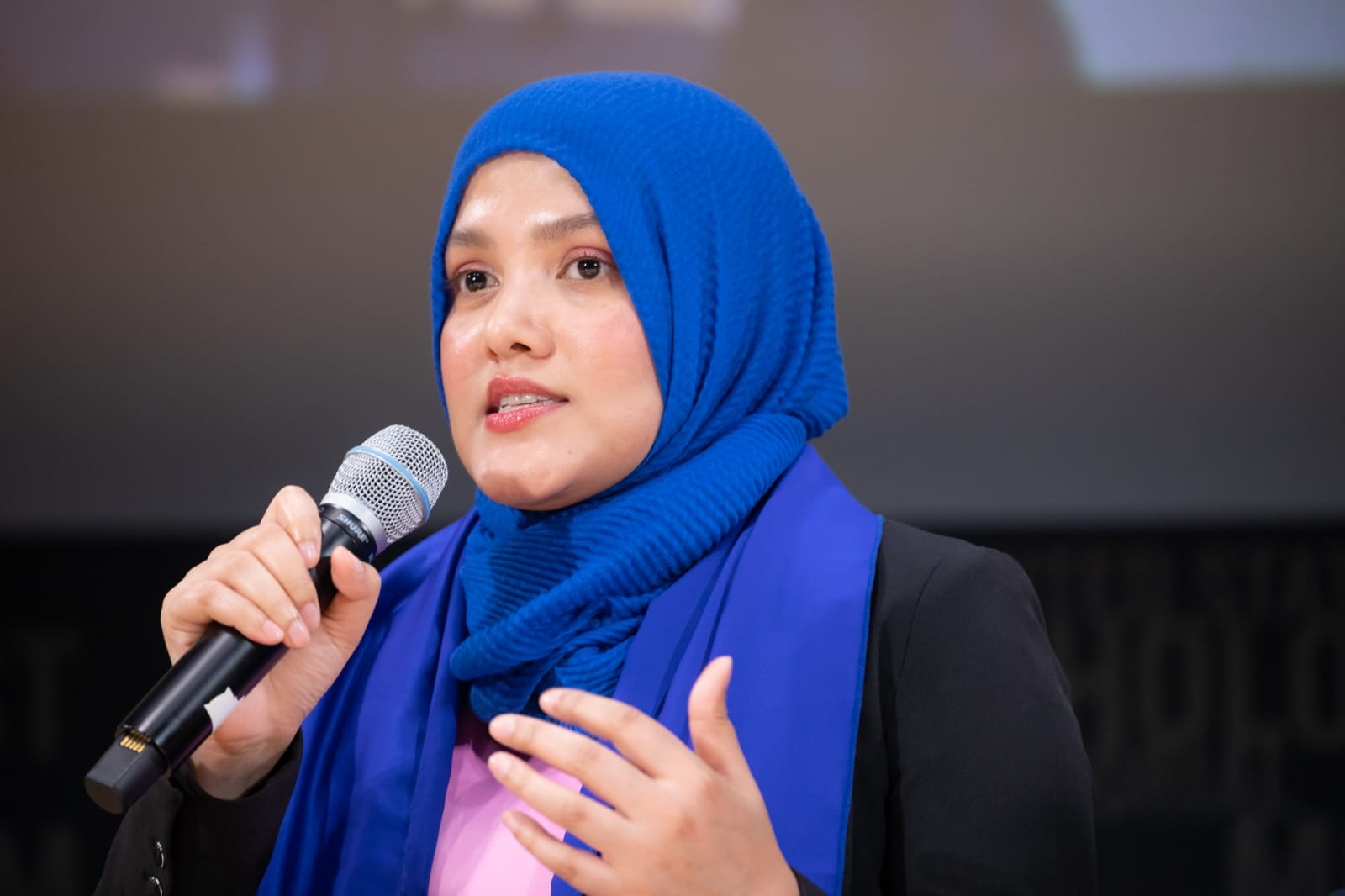
With three survivors from the 2017 massacre at The Hague sitting beside her, Ullah had to both carefully listen and interpret, because there was no translator available for the women. At one point, Ullah said, the legal counsel from The Gambia began to show photos of the massacre.
“A sister beside me was sobbing because it was so fresh in her mind. She just couldn’t hold her tears back,” Ullah said. “And I was able to console her. I think that was the proudest moment in my life. Even if I wasn’t able to do anything else, that was just one moment I was able to do something.”
As part of the ICJ Rohingya delegate, Ullah was invited to sit inside the courtroom by the legal councils during the proceedings, including when Aung San Suu Kyi, Myanmar’s State Counsellor and de facto leader, gave her speech to the tribunal.
“For all of those days in the court, she would not look to our side whatsoever,” Ullah recalled. “But there was one time … We had just finished taking a break and she happened to turn to our side, The Gambia side, as me and the Rohingya brothers and sisters were walking back in.
“And when she saw us, she turned away very quickly,” Ullah said. “I just wanted to scream at her, ‘I’m also Burmese, and you can’t take that from me!’”
In 1991, Aung San Suu Kyi became an international democracy icon after being awarded a Nobel Peace Prize for her non-violent struggle for human rights in Myanmar. However, her repeated refusal to condemn or even recognise the atrocities committed against the Rohingya at the hands of her government’s military since assuming office in 2016 have many calling for her prize to be stripped.
Suu Kyi denied genocide during the ICJ case, however conceded “disproportionate force” may have been used in counterterrorism efforts against Rohingya insurgents in 2017. Many were quick to take note of Suu Kyi’s refusal to use the term ‘Rohingya’.
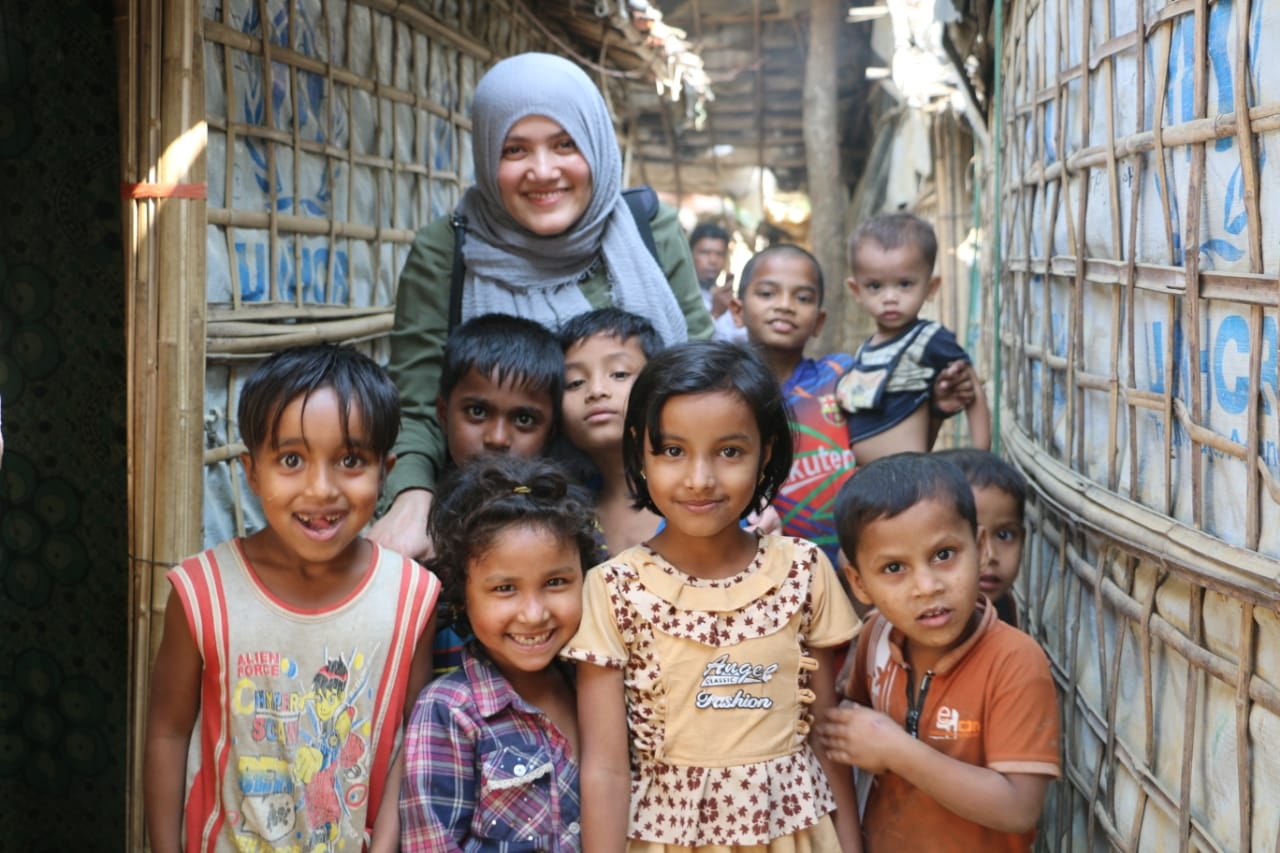
Once seen as a pioneer for women’s rights and prominent figure for female political leaders, Suu Kyi’s refusal to acknowledge mass rape and sexual violence has shattered her image as a democracy icon.
“It was surreal,” Ullah said when asked how it felt to be in the courtroom with Suu Kyi. “I mean, my dad used to carry a photo of her around in his wallet and went to her demonstrations, risking his life while she was trying to get elected in 2015.”
Although the ICJ case is a provisional decision and not a final verdict, it is still the first time an international court has found Myanmar accountable for its violent campaign against the Rohingya. The ICJ also does not have the mandate to enforce the judgement, but ruled that Myanmar must submit a compliance report every four months on their actions to protect the Rohingya.
While happy about the outcome, Ullah still remains pessimistic the decision will impact any change on the ground. She also said that more needs to be done at a grassroots level to bridge the gap between the diaspora to those in the camps.
“Revolution happens because there’s a group of people that are committed,” Ullah said. “I try to engage with many different NGOs and women specifically so we can get women to support each other. I see a lot of young bright, smart, talented people running in the camps. I don’t see any reason why we will not be able to accomplish this together.”
“There’s this expression that you are probably familiar with,” Ullah remarked. “‘It takes a village to raise a child.’ Well, it takes a movement to undo genocide.”

